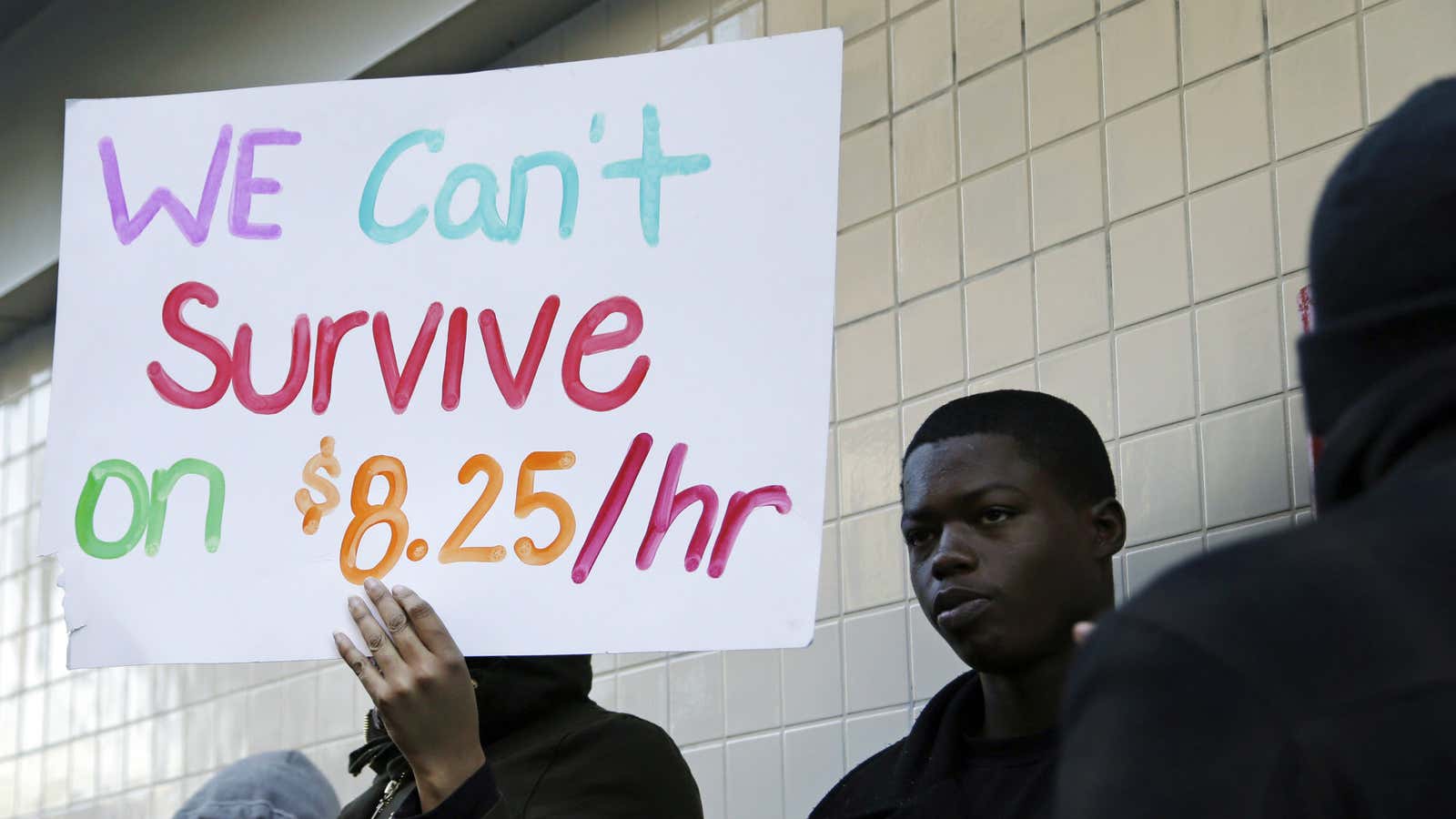It’s an experiment unprecedented in scale. California lawmakers voted Thursday (Mar. 31) to raise the state’s minimum wage to $15 an hour for all workers. On the same day, New York governor Andrew Cuomo struck a similar deal with lawmakers to pay workers there $15 too.
At $10 an hour, California is already tied with Massachusetts for the highest minimum wage of any state in the US. Pay will jump to $10.50 an hour on Jan. 1, with a dollar a year added until 2022.
The estimated 5.6 million California workers affected by the increase will see their annual pay rise an average of 24%, according to the Center for Labor Research and Education at the University of California, Berkeley. The vast majority of the affected are adults employed full-time.
A $15 hourly wage may not be a big stretch for employers in high-wage areas like San Francisco, where living costs have spiraled out of control. In rural parts of the state, however, critics fear job cuts and forced unemployment. Only 12-16% of Silicon Valley employees work in industries where at least half the workers earn less than the minimum, according to Bureau of Labor Statistics data analyzed by FiveThirtyEight. In some rural areas, almost 50% of workers are in these most-affected industries.
“We have systemic, decades-long double-digit unemployment,” Democratic lawmaker Adam Gray told the LA Times. “While $15 an hour probably isn’t even high enough for areas like San Francisco and parts of Los Angeles and our other urban centers, it’s too high for some small businesses and some communities.”
Recent research has found that minimum wage increases of a dollar or two are often absorbed without much affect on employment. But the size of New York and California’s increases, and the number of workers they affect, have many economists skeptical, even ones who generally favor a higher minimum wage.
The victories in California and New York have encouraged proponents of a national $15 minimum wage, a proposal backed by Democratic presidential candidate Bernie Sanders. Currently, the national minimum wage is set at $7.25 per hour.
Economist Alan Krueger, former chairman of President Barack Obama’s Council of Economic Advisers, has advocated for a national $12 minimum wage. That rate, he argues, would keep the US in line with nations like the UK, which also raised its minimum wage this week.
Some states and cities could absorb a $15 hourly rate, Kreuger wrote in the New York Times.
“But $15 an hour [nationally] is beyond international experience, and could well be counterproductive,” he continued. “A $15-an-hour national minimum wage would put us in uncharted waters, and risk undesirable and unintended consequences.”




